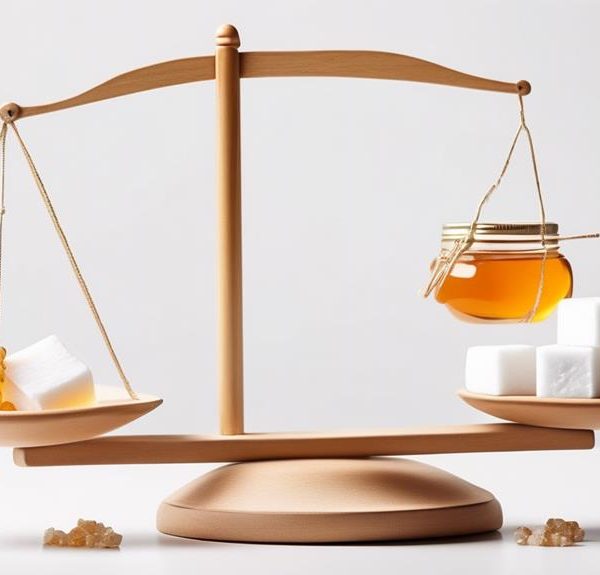Munching on honey lemon Strepsils and wondering if they're vegan? Unravel the complicated relationship between veganism and pharmaceuticals in our comprehensive guide.
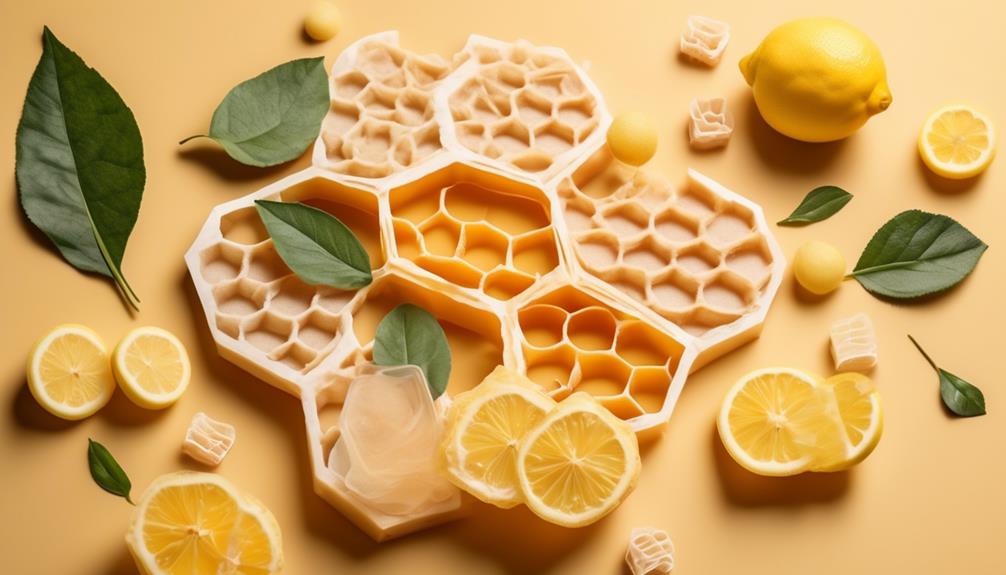
Are Honey and Lemon Strepsils Vegan
Just as you're reaching for that honey and lemon Strepsils to soothe your sore throat, you pause. The question arises, 'Are these lozenges vegan?' It's not an absurd query, considering you've committed to a vegan lifestyle, and it's become second nature for you to scrutinize the ingredients of everything you consume.
But when it comes to medicine, the lines can blur. Let's embark on this exploration together, navigating the complexities of veganism and its intersection with the pharmaceutical industry. Will you find the answers you're searching for? Only time will tell.
Key Takeaways
- Honey and Lemon Strepsils are not considered vegan due to the presence of honey, which is derived from bee exploitation.
- The vegan status of a product is determined by considering all ingredients in the formulation, not just individual components like lemon.
- Vegans may opt for alternative throat lozenges from brands like Ricola, Herbion, and Thayers that offer vegan-friendly options.
- Ethical considerations around bee exploitation in honey production highlight the importance of making compassionate consumption choices.
Understanding Vegan Diets
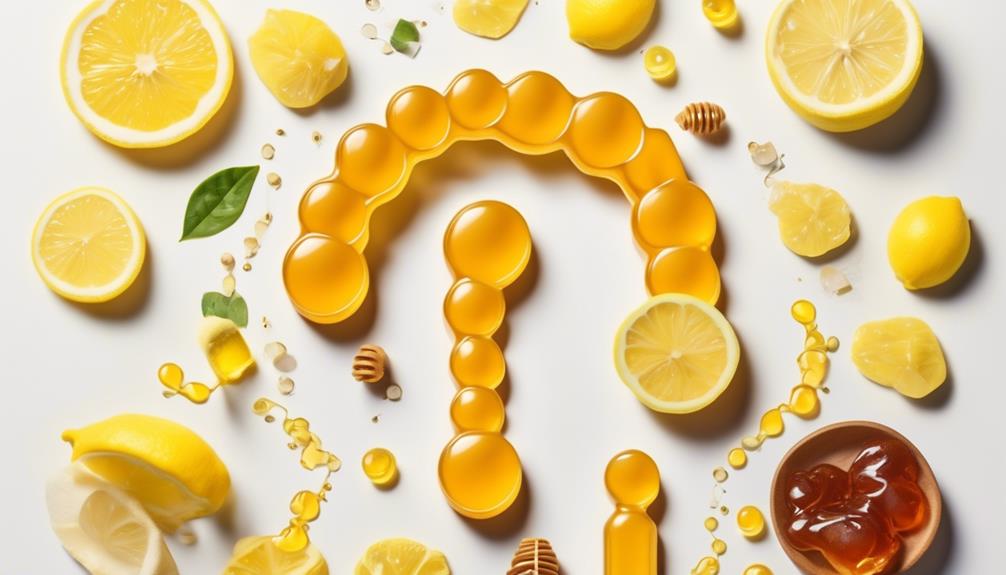
To fully comprehend whether Honey and Lemon Strepsils align with a vegan diet, it's crucial to understand what being vegan truly means. Essentially, a vegan diet is one that excludes all animal products, including meat, dairy, eggs, and yes, even honey. You see, vegans believe in respecting all forms of sentient life, hence they abstain from consuming anything derived from animals.
Now, let's get analytical. Honey, which is a key ingredient in Honey and Lemon Strepsils, is produced by bees for bees. It's their food source, especially during winter. Harvesting honey involves intrusion into their hives, seen by many vegans as exploitation of the insects' labor. Therefore, from this perspective, honey isn't considered vegan.
On the other hand, lemon, another prominent ingredient, is fully plant-based, hence aligns perfectly with a vegan diet. However, a product's vegan status isn't determined by individual ingredients, but by the product as a whole.
Ingredients in Honey and Lemon Strepsils
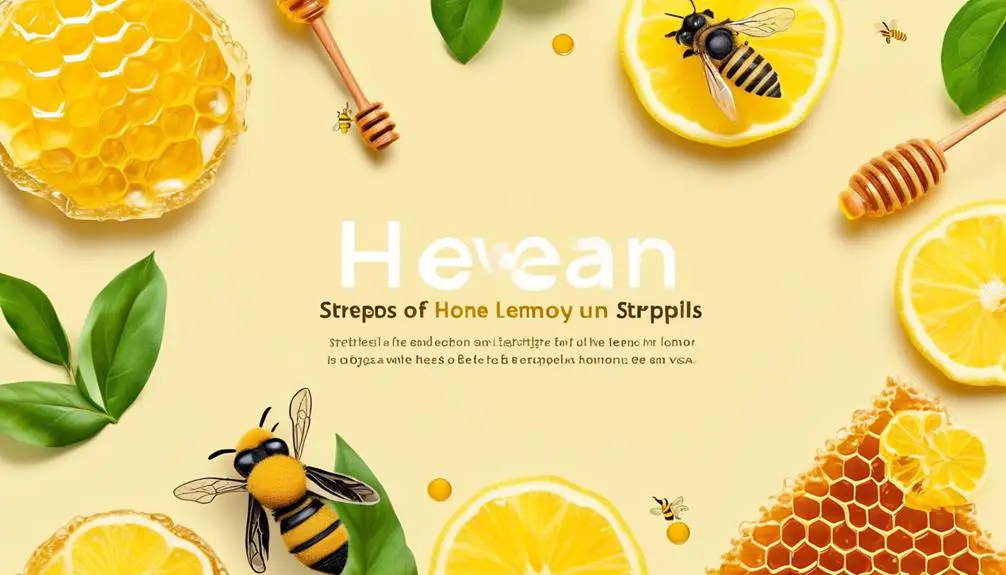
Having understood the vegan perspectives on honey and lemon, let's now dissect the composition of Honey and Lemon Strepsils to determine their vegan status. As you're probably aware, the primary ingredients are, as the name suggests, honey and lemon. However, these aren't the only components you need to be mindful of.
The active ingredients in these lozenges are 2,4-Dichlorobenzyl alcohol, Amylmetacresol, and Levomenthol. These are synthetic chemicals used for their antiseptic and analgesic properties. They're not derived from animals, so they align with vegan principles.
However, when we delve into the other ingredients, we find glucose syrup and sucrose. While these are plant-derived, the concern for vegans often lies in the refining process which sometimes involves bone char, a non-vegan substance. The company doesn't specify the refining method used, so there's a level of uncertainty here.
The most glaring issue, though, is the inclusion of honey. As we've discussed, honey is a contentious ingredient in the vegan community due to the exploitation of bees in its production. Therefore, if you're strictly adhering to a vegan lifestyle, Honey and Lemon Strepsils mightn't be the best choice for you.
Animal Products in Medicines
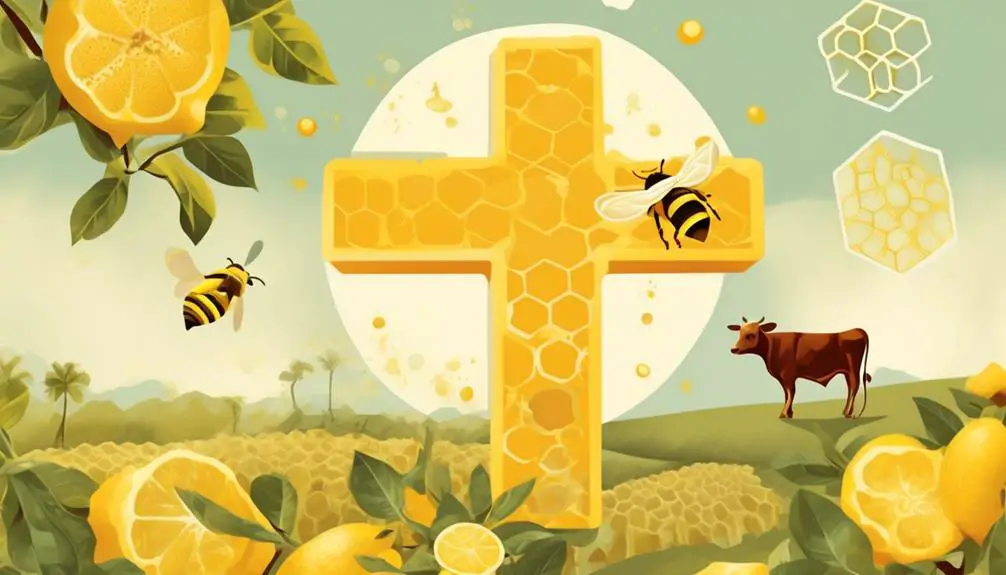
Diving into the realm of medicines, it's crucial to understand that many commonly used drugs and health products contain animal-derived ingredients, a fact that often goes unnoticed by consumers, especially those following a vegan lifestyle. You may be surprised to learn that gelatin, a substance derived from animal collagen, is a prime example. It's widely used in the pharmaceutical industry as a gelling agent in capsules and tablets.
Similarly, lactose, a sugar from cow's milk, is frequently used as a filler in tablets. Another common ingredient is glycerin which can be either plant-based or animal-derived. It's often used as a sweetener and preservative in cough syrups and other liquid medicines.
You'll also find beeswax in various ointments and creams, and lanolin, a waxy substance from sheep's wool, in many skin lotions. Also, many vaccines and injections contain egg proteins or are grown in cultures containing animal products, posing an ethical dilemma for vegans.
While alternatives are available, they're not yet widespread. Hence, it's essential for you to read the ingredients carefully or consult with your pharmacist to ensure your medicines align with your vegan lifestyle.
Ethical Considerations of Honey
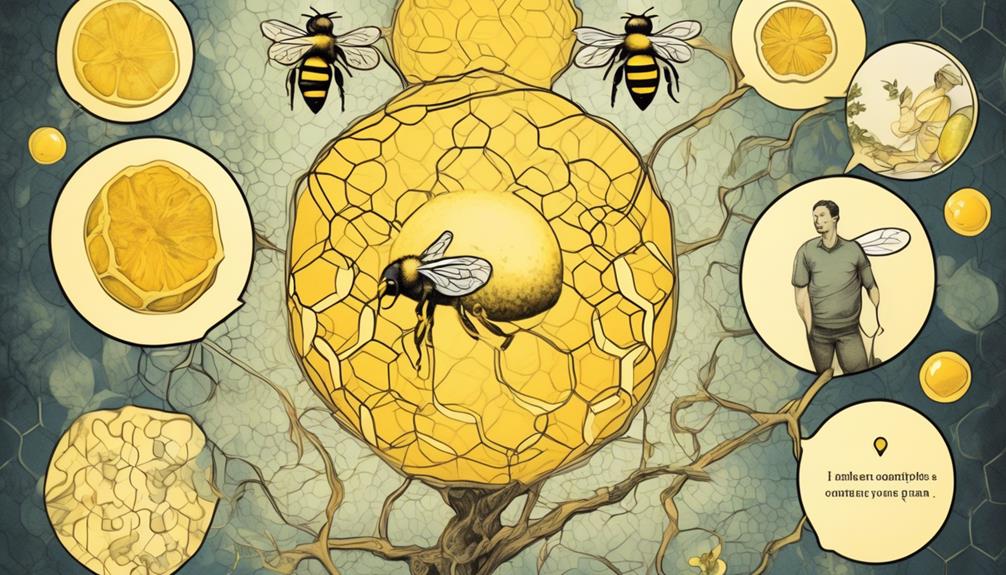
While considering the prevalence of animal products in pharmaceuticals, it's also worth examining the ethical implications of using honey, a common ingredient in many medicines such as Strepsils. You might wonder, what's wrong with honey? Isn't it just a byproduct of bees doing their natural work? Well, it's not that simple.
Honey production often involves practices that many vegans and animal rights advocates find problematic. Bees produce honey as their food source, particularly for winter months. When humans take the honey, it's often replaced with a sugar substitute that isn't as nutritious. This can weaken the hive, making them more susceptible to disease and parasites.
Furthermore, in commercial beekeeping, queens are often artificially inseminated and killed after two years, even though their natural lifespan is around five years. Some beekeepers also clip the queen's wings to prevent her from swarming and leaving the hive, a natural behavior.
All these practices can cause unnecessary stress and harm to the bees. If you're striving to make ethical choices in your consumption, you might want to reconsider products made with honey, including medicines like Strepsils. It's a small step towards a more compassionate world.
Vegan Alternatives to Strepsils

If you're searching for a vegan-friendly alternative to Strepsils, there's a variety of options available that don't compromise on effectiveness or taste. Brands such as Ricola, Herbion, and Thayers offer lozenges that are completely plant-based and free from any animal-derived ingredients.
Ricola's herb throat drops, for instance, are renowned for their natural composition. They're made with a blend of 13 Swiss mountain herbs, providing a soothing effect without any artificial colors or flavors.
Herbion Naturals, on the other hand, focuses on combining the benefits of herbal extracts, like licorice and menthol, to deliver effective relief.
Thayers Slippery Elm Lozenges are another great choice. They're derived from the inner bark of the Slippery Elm tree, which has been used in traditional medicine for centuries due to its soothing properties. Thayers' blend also includes antioxidant-rich rose hips and vitamin C, further boosting its healing potential.
When choosing a vegan alternative, it's important to check the ingredient list for hidden animal products, like honey or gelatin. With these alternatives, you can soothe your sore throat while staying true to your vegan lifestyle.
Conclusion
In conclusion, honey and lemon Strepsils aren't vegan due to the honey component. While medicines often contain animal products, it's the ethical implications of honey that pose a problem.
Thankfully, there are plenty of vegan alternatives to soothe your sore throat. So next time you're feeling under the weather, consider opting for a vegan-friendly option. It's all about being conscious of your choices and aligning them with your ethical beliefs.


